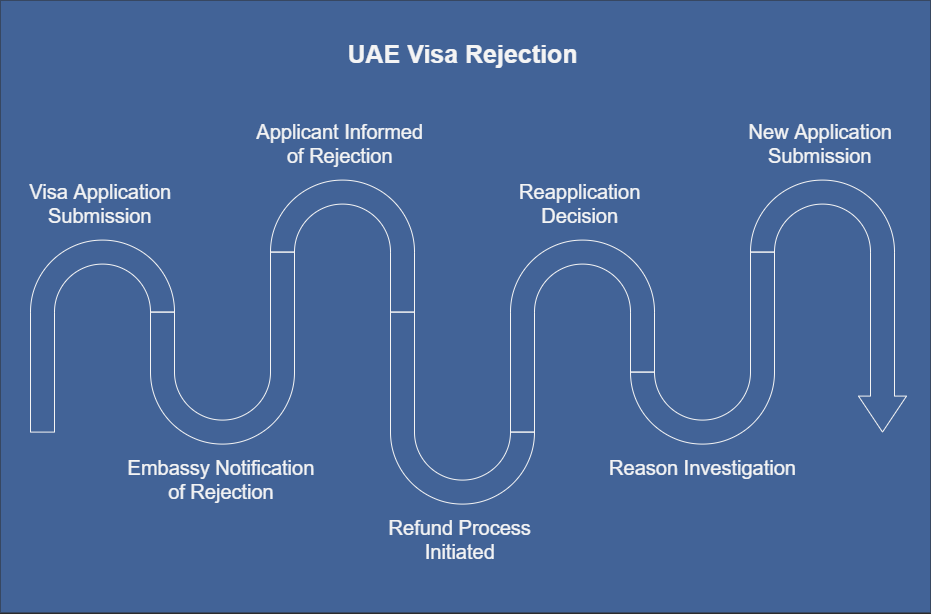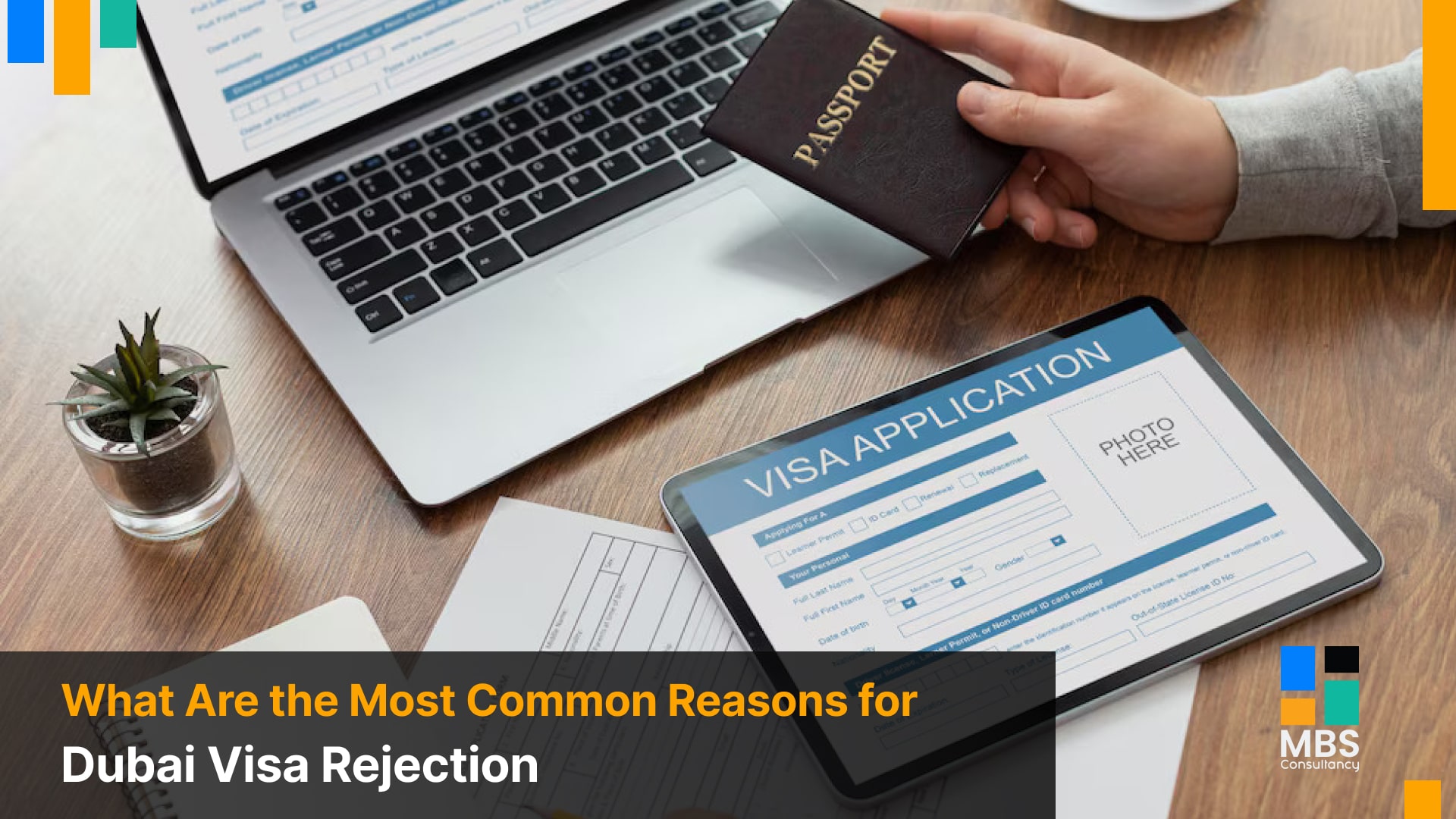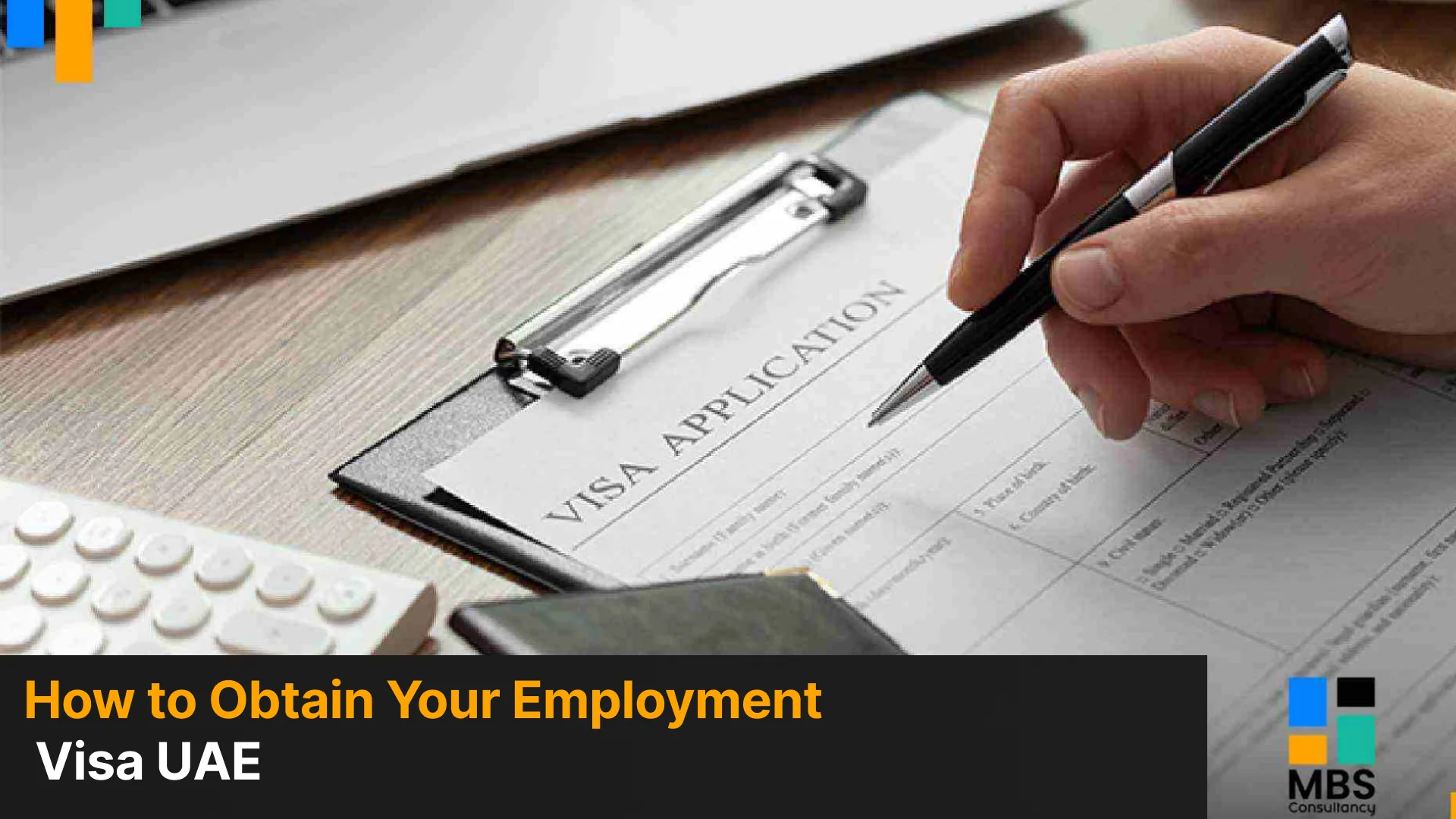Getting your UAE visa rejected can be frustrating – especially when you’ve planned your trip, job, or studies in Dubai. A single mistake or missing document can lead to your visa being refused, delaying your plans and raising questions about what went wrong.
A Dubai visa rejection means that the UAE immigration authorities have declined your entry application for specific reasons – from incomplete paperwork to past visa issues.
In this guide, we’ll help you understand the most common reasons for Dubai visa rejection, how to check the rejection status, and what you can do to fix issues and reapply successfully.
Why Should Your UAE Visa Be Rejected from the Regulated Authorities?
There might be various reasons why your UAE visas are refused. However, the following are some typical reasons for visa rejection in Dubai.
Former Residential Visa:
Individuals who previously obtained a residence visa in the UAE but departed the country without terminating it may be rejected until their prior residential visa is canceled or renewed.
Written Passport Copies:
The UAE visa authorities can instantly reject entries that include handwritten passport copies.
Misspellings or Inaccurate Information:
Requests with typing mistakes in the name, identification number, occupation code, or date of birth will likely be delayed or rejected.
Not Sure Why You Were Denied?
Crime Record:
The visa rejection reasons in Dubai may depend on the previous crime records of the applicant. Individuals with criminal histories who have engaged in fraud or misbehavior in the UAE can be rejected.
Picture Criteria:
The image provided with the visa application must fulfill the stipulated specifications; a blurred or inaccurate image may result in rejection.
Prior Visa Application:
Persons who previously filed for a visa to travel but did not visit the UAE may be denied unless their prior visa is canceled or renewed.
Invalid Work Visa:
Individuals who sought a UAE work visa via a potential employer but failed to enter the region may also be rejected.
UAE Visa Refusal Due To Healthcare Reasons:
All UAE expatriates seeking residence visas or work licenses have to be physically fit and free of contagious diseases. Expats who fall short of these criteria will have their UAE visas denied, nevertheless. To get a work or residency visa, foreigners visiting the United Arab Emirates must be clear of any contagious diseases like HIV and TB.
The following groups of workers must be tested negative for Hepatitis:
- Workers in childcare
- Domestic servants include housemaids, babysitters, and drivers.
- Food service workers and staff in restaurants and cafés
- Employees at salons and beauty clinics
- Workers at fitness centers
- Female domestic servants must test negatively for pregnancy.
- Healthcare fitness assessments must be completed at government-approved health facilities in the UAE before the UAE would issue or renew a resident visa.
How Can You Check Your UAE Visa Rejection?
Usually, people from their own country embassy are informed should their UAE visa application be declined. Usually, the embassy writes a letter outlining the reasons for the denied visa.
Still, candidates may be able to confirm their UAE visa status or Dubai visa rejection on the consulate website. Please kindly find the consulate of your nation for the procedure for confirming the cause of the UAE visa rejection.

Refunds After UAE Visa Refusal:
You should know that UAE visa officials do not provide refunds for refused or failed UAE visa applications. If candidates pay a security deposit, it will be repaid within four global working days after the visa application is denied.
New Visa Application After Refusal:
You might reapply for a UAE visa if your first application is denied. Before applying once again, however, you must first find the reason for the rejection and act to fix it.
You might ask the UAE visa section the sponsor for the visa to investigate the reason for the refusal and act accordingly. Make sure your new application meets all criteria and is error-free if you want another rejection avoided.
How Long After Rejection Can You Reapply for a UAE Visa?
There’s no officially fixed waiting period announced by UAE immigration authorities, but most applicants can reapply within 5 to 15 days after addressing the reason for rejection. The exact waiting time may differ depending on the type of visa – such as visit, employment, or residence visas.
Before resubmitting your new application, make sure you’ve done the following:
- Confirm that your previous visa has been canceled or has expired.
- Correct all typing or documentation mistakes from your earlier submission.
- Verify that your passport details, photographs, and occupation information match your official documents.
- Ensure you’re not listed under any immigration alert or entry ban.
- Reapply through a legitimate sponsor or authorized visa agent.
Avoid submitting a new application immediately after rejection without resolving the issue — this could result in another refusal. Taking the time to correct errors and prepare a clean, verified application will significantly increase your approval chances.
Although it would be unfortunate to have your UAE visa denied, it does not mean your trips are over. Review the grounds for the refusal of the Dubai visa carefully before deciding what to do going forward. You could also search for a resident visa renewal or visit visa renewal in the UAE. Should your UAE visa be denied, here are some suggestions to guide your future actions:
Verify The Justification For Visa Rejection:
This is the initial stage before making any decisions. You may contact the UEA via phone, email, or ask your sponsor or travel agent to assist you.
Optimize Your Visa Application:
Reapply after fixing visa application mistakes and submitting it again, considering your faults.
Observe the waiting time between visa applications.
Specify how long you will wait after your visa is refused. Verify this time for your visa type since it may differ between visit and resident visas.
Search For Substitutes:
You may also be able to file for a visa renewal in conjunction with a visit visa extension in the UAE or any other current visas. In this case, verify your visa renewal cost and the procedure you may have to go through.
Unsure Why Your Visa Was Denied? Let Us Help You Decode the Refusal and Plan Your Next Application Smartly
Precautions to Avoid UAE Visa Rejection
To prevent typical errors that result in Dubai visa rejection, follow these tips:
Ensure that you accurately assess your application. Check for errors in your name, passport details, or work code. Incorrect data often results in delayed answers or even outright rejection.
Always include reliable and accurate data in your application. Your application may be denied if you are uncertain or deceptive about your identity.
Submit clean, passport-sized photos. Pictures that are fuzzy or have the incorrect size might cause delays.
Refrain from handwritten passport copies. These are usually refused by UAE immigration.
Make sure to include all required documents in your application. If your paperwork is incomplete or missing, they may reject your application.
If you formerly applied for a UAE visa but did not go, cancel your prior visa before applying again. Active visas may cause refusal until they expire.
If you overstayed with a prior UAE visa, your identity may be blocked, preventing future applications.
Females under twenty-two who travel alone may risk refusal or delays. Consider going with a parent, a guardian, or a husband.
Unskilled employment, such as laborer or farmer, is less likely to be authorized. The UAE favors qualified experts.
Applicants with criminal histories or proven fraud in the UAE would be immediately banned and denied.
Useful UAE Visa Rejection Helplines and Official Resources
If your UAE visa has been rejected and you want to confirm the reason or seek official clarification, you can contact the relevant authorities through the following official channels:
General Directorate of Residency and Foreigners Affairs (GDRFA – Dubai)
- Website: https://www.gdrfad.gov.ae
- Call Centre: 800 5111 (within UAE)
- For international callers: +971 4 313 9999
- You can also visit a GDRFA service centre in Dubai for in-person assistance.
Federal Authority for Identity, Citizenship, Customs and Port Security (ICP/ICA)
- Website: https://www.icp.gov.ae
- Customer Happiness Centre: 600 522 222
- Email: [email protected]
UAE Embassies and Consulates Abroad
If you are applying from outside the UAE, you can reach out to the nearest UAE embassy or consulate in your country.
- Directory: https://www.mofa.gov.ae/en/missions
Amer Service (for Dubai Visa Enquiries)
- Website: https://amer.gdrfad.gov.ae
- Toll-Free: 800 AMER (2637)
- Provides visa status checks, rejection reasons, and renewal guidance.
These official portals and contact centres are the most reliable sources for clarifying visa rejection reasons, checking your application status, and ensuring that your next submission meets all requirements.
Final Words
A Dubai visa rejection can feel discouraging, but it’s not the end of your UAE travel or career goals. Most refusals happen due to minor mistakes – ones that can easily be fixed with the right guidance.
By carefully reviewing the rejection reason, double-checking your details, and resubmitting a complete and error-free application, you can greatly improve your chances of approval the next time.
If you’re unsure why your visa was denied or want expert support for your next submission, our UAE visa specialists can review your case, identify issues, and help you reapply successfully.
Need Personalized Assistance? Contact Our UAE Visa Specialists Today for Guidance Tailored to Your Case
FAQs
What Happens if A UAE Visa Is Rejected?
You’ll be informed through your country’s embassy/consulate if your UAE visa is rejected, with a letter explaining the reason. It means you can’t enter the UAE unless you resolve the issue and reapply.
Can I Apply Again if My Visa Is Rejected in The UAE?
If your visa is rejected, you can reapply, but first, identify and fix the reason for rejection. It can be anything like errors, prior visas, or documentation issues. Next time, make sure your new application is accurate to avoid another refusal.
How to Check Visa Rejection Reasons in The UAE?
Often, applicants are notified by their embassy with a rejection letter. If you want to confirm, you can also check through the UAE consulate website. Another way is to ask your visa sponsor or travel agent to investigate the reason for rejection.
What Is the Rejection Rate of The Dubai Visa?
As per reports, there’s no fixed public percentage. Most of the time, rejection depends on individual applications. But many common concerns, like errors, incomplete documents, and others, drive refusal rates for Dubai visas.
What Are Common Visa Rejection Reasons?
Various reasons cause rejections, including prior uncancelled visas, handwritten passport copies, errors in personal details, blurred photos, previous overstays, unskilled job applications, or criminal history in the UAE. Note that each can lead to delays or outright refusal.
Why Is the UAE Visa Rejected for Security Reasons?
Usually, security-related rejections occur if the applicant has a criminal record. He/she might have had a past fraud or been previously involved in misbehavior in the UAE. Often, such cases result in immediate denial with no chance of approval.
Is the UAE Visa Fee Refundable if Rejected?
After rejection, UAE visa fees are not refunded. However, only security deposits, if paid, are refundable within about four working days of the refusal. Keep this in mind that application and processing fees remain non-refundable.




